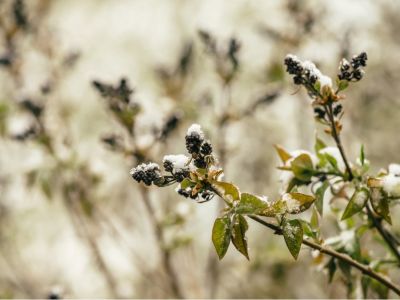Winterizing Lilac Shrubs
Lilacs are one of the most winter hardy ornamental plants around. Do lilacs need cold protection? They can withstand temperatures of -40 degrees F. (-40 C.) but may need some protection from icy winds that damage the flower buds. They need well-draining soil to prevent frozen water from damaging their roots and killing the tree. Lilacs that have not been grafted are hardier than those that have been grafted to rootstock. Lilac winter care starts with good siting and a healthy plant. The plant needs at least eight hours of sunshine and alkaline to neutral soil. When choosing a planting location, avoid planting them against a light-colored building or wall, as this can cause winter burn from the reflection. They make a brilliant front of house display and darker buildings can actually afford lilac winter protection. However, avoid planting them too close to the foundation, as their roots can cause issues over time. Prune off the spent flower heads to help promote bud formation. Winterizing lilac shrubs is not the intensive process it is for sensitive plants.
Lilac Care in Winter
Lilacs withstand a chilly winter better than most plants. They do benefit from occasional watering if there is no precipitation available to the roots. Watering around the root zone actually keeps the soil warmer than dry soil, offering lilac winter protection. In rare cases, you may need to cover the plant to protect the buds. This occurs in late winter to early spring when buds are beginning to break, and a harsh freeze comes along. Use a blanket, canvas, or even plastic tent over the bush to help protect the buds form the cold. Remove it during the day if temperatures warm up so the plant can get sun and air.
Pruning for Post Lilac Winter Care
Pruning is not important for the first five to six years of a young lilac’s life. It can be an important step to lilac recovery if winter damage has occurred. Wait until the plant has bloomed before you make any cuts to avoid removing the flowers. Cut out any damaged or diseased stems. Thin the suckers by one-third for complete rejuvenation of old plants. After three years, the plant will be renewed without affecting bloom production.
